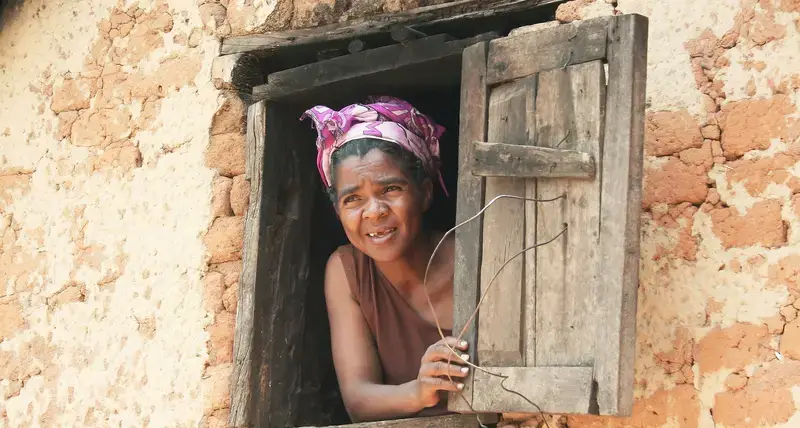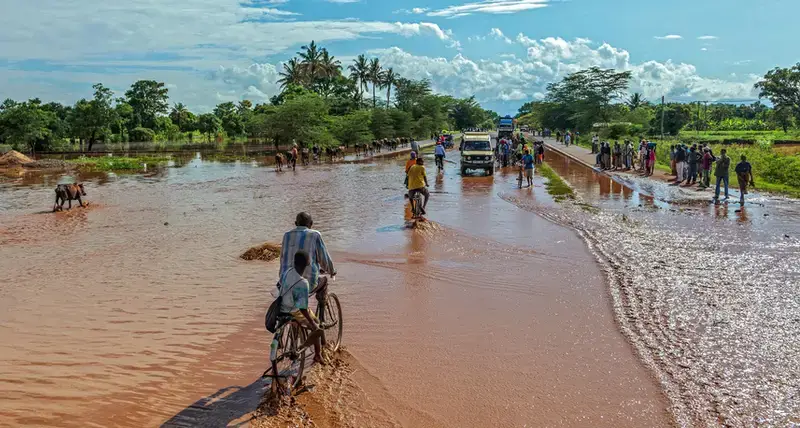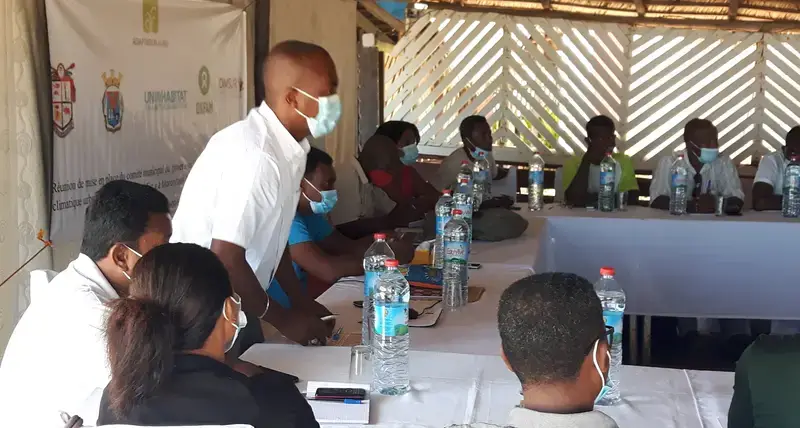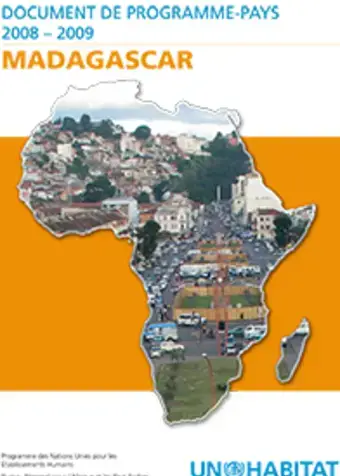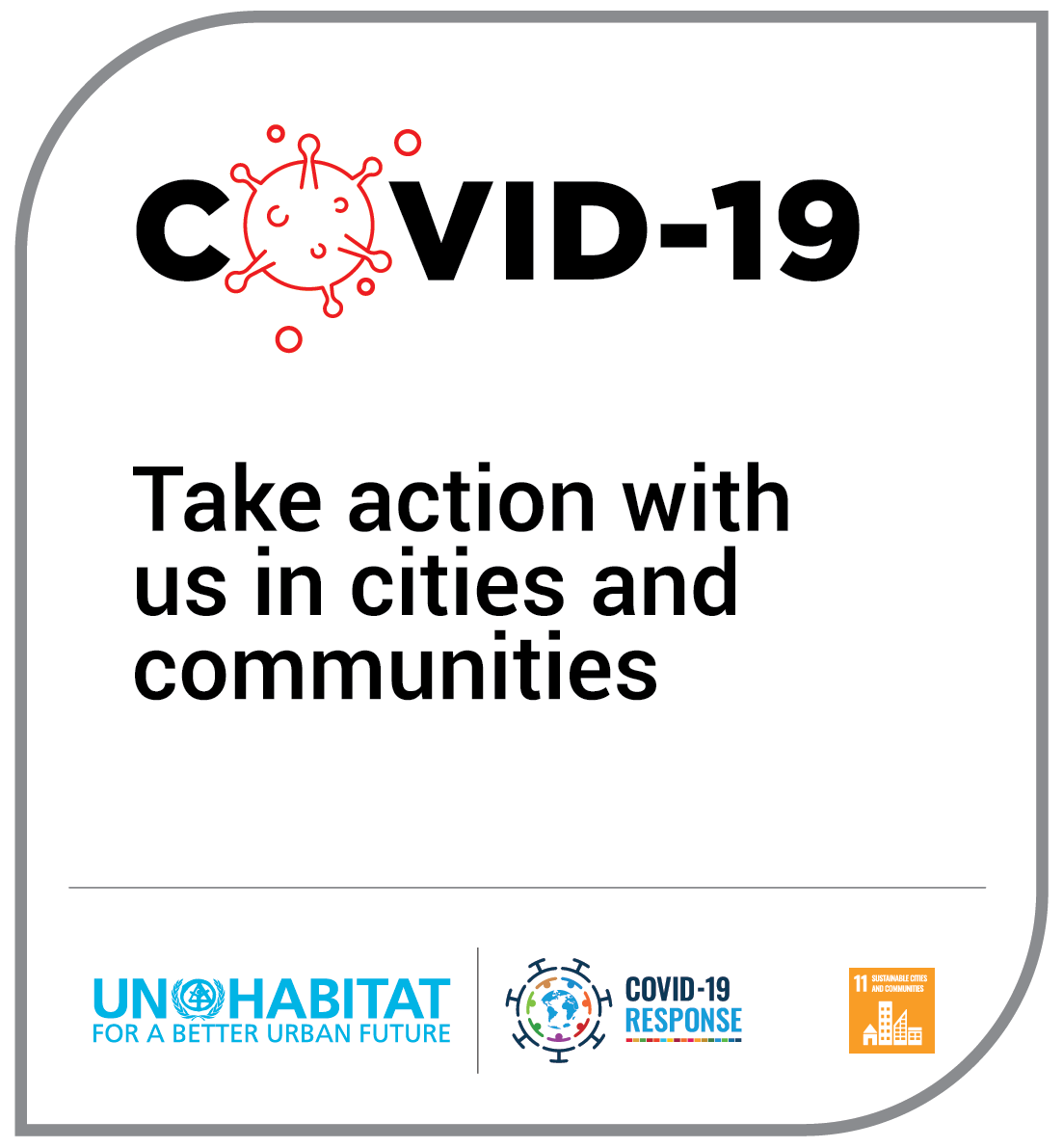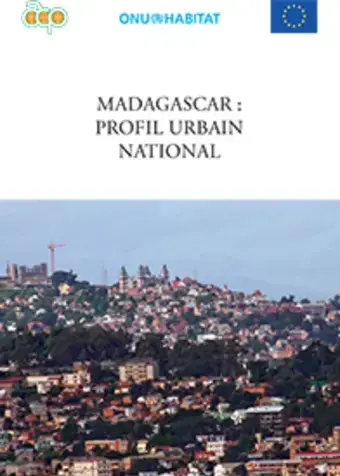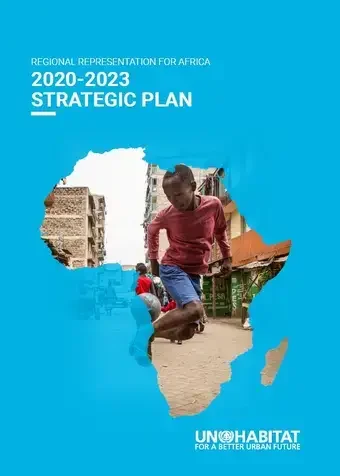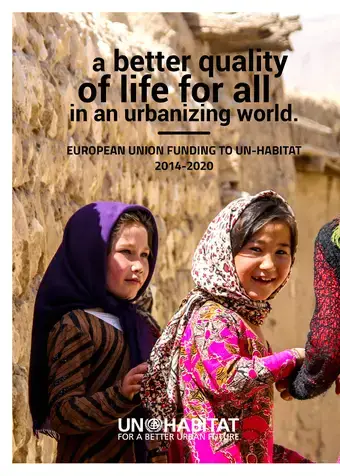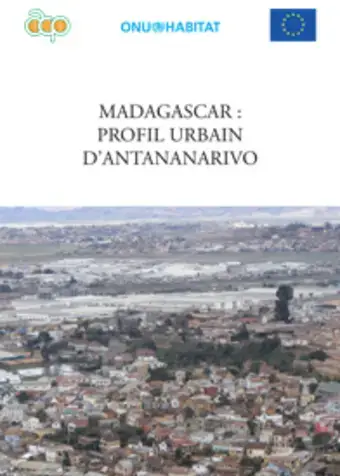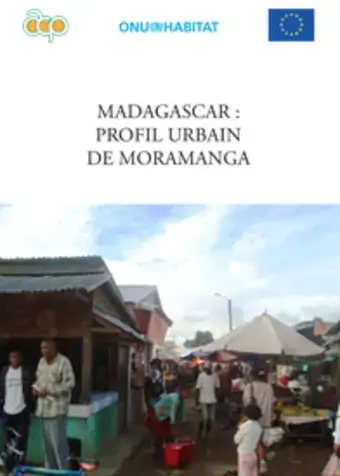Overview
UN-Habitat has always been the privileged technical partner of the various Malagasy governments that have succeeded each other since 2005 in the field of land use planning, urban development and land tenure, but with UNDP as the main financial partner.
UN-HABITAT’s technical assistance has always been requested for support and advice in the development of land and urban management tools, in the development of policies/strategies at all territorial levels (regional, national interregional, intermunicipal and local), in capacity building and in the implementation of territorial management and planning mechanisms, jointly developed for harmonized spatial development and the strengthening of land use security.
“We hope that collaboration between UN Habitat and Madagascar will be strengthened so that we can benefit from support and that UN Habitat could provide us with research, funding and partner mobilization.”
Country: Overview
Country: Overview
Country: Overview
The urban population of Madagascar is estimated at 6,900,000 inhabitants in 2014 if it was about 2,800,000 inhabitants in 1993. By 2036, it is estimated to reach more than 17.6 million. Thus, the urbanization rate has increased from 22% in 1993 to 37% in 2012 and is expected to reach 50% in 2036. In 1993, there were only about fifty cities (7 majors urban centers and 45 urban municipalities), there are in fact 172 cities, 72 of which are urban municipalities. These statistics show the rapid population growth in urban areas.
In this context of rapid and uncontrolled urbanization, most cities face many problems: social problems, inadequate infrastructure, lack of development services, increasing land pressure in large cities, dilapidated streets and sanitation networks, health problems due to air pollution, poor hygiene, etc. As a result, the poverty level is higher (66% in 2012) in the capital (Antananarivo) than in other cities (42%). This factor has contributed to the development of slums in Madagascar’s large and small cities. In 2013, the slum population is estimated at about 72%.
Total Population (2018): 26,256,142
No. of Projects (2018-2019): 01
Urban Population (2018): 37.2%
Urban Growth Rate (2015-2020): 4,48%
Our work
Featured Stories & Videos
Country Beneficiaries
“We hope that collaboration between UN Habitat and Madagascar will be strengthened so that we can benefit from support and that UN Habitat could provide us with research, funding and partner mobilization.”
Rabe Harimanana, Director General of Spatial Planning and Housing, Madagascar
Donors
Partners
Contact
Highlighted Publications
Legacy content
- Total value of UN-Habitat investments (2008-2015): US$ 2,391,360
- Total number of UN-Habitat projects (2008-2015): 6 projects
- Main donors: United Nations Trust fund for Human Security, UNDP Madagascar, European Commission, Abu Dhabi Water and Electricity Authority (ADWEA), IBRD/World Bank
- Implementing partners: UNICEF, OCHA, UNFPA, Deputy Prime Minister in charge of Development and Planning; Deputy Prime Minister in charge of Economy and Industry, Ministry of Water, Ministry of Population, Urban district of Antananarivo, Grand TANA, urban and rural communes, FAO,COOPI, CARE, Bureau for Disaster Management (BNGRC) & National Institutes or Offices for Disaster Risk Management of Madagascar, City of Antananarivo, SADC DRR Unit, African Union, RIASCO (UN Coordination), UNISDR; European Union; ECHO; GFDRR; World Bank; OCHA; Southern Africa Development Community (SADC) DRR Unit; various academic institutions and NGOs operating in southern Africa.
General information
Capital: Antananarivo
Major cities: Toamasina, Antsirabe, Fianarantsoa, Mahajanga, Toliara, Antsiranana, Antanifotsy, Ambovombe, Ambilobe.
- Population: 22.29 Million
- GDP: US$9.975 Billion
- GDP growth: 3.1%
- Urban population (annual %): 33%
- Population growth rate (average annual %): 2.8%
- Urban population growth rate (average annual %): 4.7%
- Rural population growth rate (average annual %): 1.8%
Source: World Bank 2012
UN-Habitat projects in Madagascar
Creation of a Public Space in Manakara
Located on the southeast coast of Madagascar, Manakara is a town of 37,000 inhabitants. Public spaces are poorly managed and maintained and not accessible to all; many are used for commercial purposes. In addition, they are insufficient in number and in terms of spatial distribution; and no longer meet the needs of city dwellers. Using a participatory and inclusive approach, UN-Habitat will support the creation of a public space - Parkway Manakarois - a recreational public space that is friendly and accessible to everyone and will contribute to improving the living conditions of local people.
Project duration: 2016 - ongoing
Value USD: 91,765
Donor: Mojang
Implementing Partners: Manakara Municipality
Human Security project for the prevention of violence and vulnerability reduction for the most vulnerable inhabitants of Antananarivo, Madagascar
To improve security of vulnerable inhabitants of the selected neighborhoods of Antananarivo through community-empowerment, resilient buildings and protection mechanism for the most vulnerable especially women, children and youth
- Duration: May 2011 - December 2014
- Value: US$ 1,251,150
- United Nations Trust fund for Human Security
- Implementing partners: UNICEF, OCHA, UNFPA
- Location: 25 Neighbourhoods of the Municipality of Antananarivo and of peri-urban areas
Territorial Planning and Development
Capacity development in urban planning and development at a local and municipal level, implementation of local urban development programmes, reduction of violence in urban and peri-urban areas and mobilization of internal resources and external financing for advocacy and communication.
- Duration: January 2013 - December 2014
- Value: US$ 498,097
- UNDP Madagascar
- Implementing partners: Deputy Prime Minister in charge of Development and Planning; Deputy Prime Minister in charge of Economy and Industry, Ministry of Water, Ministry of Population, Urban district of Antananarivo, Grand TANA, urban and rural communes
Regional Multi-Sectoral DRR Assistance Programme for Southern Africa (UN-Habitat Basic Infrastructure , Shelter and Urban Risk Assistance)
Four main specific aspects are addressed through the UN-Habitat project: 1) Weak capitalization of practices and weak institutionalization at the Regional, National and Local level across and within the 3 countries. 2) Lack of instruments to train city managers and planners in DRR/M in Southern Africa and vulnerable cities (i.e. Karonga, Malawi; Antananarivo, Madagascar; Xai-Xai, Mozambique). 3) Need of technical support on disaster-resistant architectural solutions in the 3 countries by partnering agencies and NGOs. 4) Need to develop low-cost practices of reconstruction and retrofitting in affected areas of Mozambique (Gaza and Zambezia: Cyclone Funso, 2012)
- Duration: January 2013 - January 2014
- Value: US$ 256,413
- Donor: European Commission
- Implementing partners: FAO,COOPI, CARE
- Location: Regional project in Madagascar, Malawi, Mozambique
Regional Multi-Sectoral DRR Assistance Programme for Southern Africa (UN-Habitat Basic Infrastructure, Shelter and Urban Risk Assistance)
Analysis of food security risks and vulnerabilities in hazard prone urban and peri-urban areas, and develop alternative tools for participatory planning, land use and building norms to address food security related issues
- Duration: July 2013 - November 2013
- Value: US$ 33,200
- Donor: Abu Dhabi Water and Electricity Authority (ADWEA)
- Implementing partners: COOPI, CARE, Bureau for Disaster Management (BNGRC); City of Antananarivo, Madagascar; Regional Institutions: SADC DRR Unit, African Union; Regional partners: RIASCO (UN Coordination)
- Location: Regional project in Madagascar, Malawi, Mozambique
Support the Establishment of a Technical Centre for Disaster Risk Reduction and Climate Change Adaptation for Southern Africa (DIMSUR)
The main project objective is to support the establishment of the DIMSUR with the mandate of providing DRR and CCA assistance and knowledge to address the needs of national programmes, and therefore reduce the vulnerability and build the resilience of communities to natural hazards.
- Duration: July 2013 - June 2015
- Value: US$ 202,500
- Donor: IBRD/World Bank
- Implementing partners: National Institutes or Offices for Disaster Risk Management of Madagascar, Malawi, Mozambique and Union of Comoros; UNISDR; European Union; ECHO; GFDRR; World Bank; FAO; OCHA; Southern Africa Development Community (SADC) DRR Unit; various academic institutions and NGOs operating in southern Africa
- Location: Regional project in Comoros, Madagascar, Malawi, Mozambique
Participatory Slum Upgrading Programme
The Participatory Slum Upgrading Programme is being implemented with a focus on the development and adoption of inclusive policies and strategies for slum upgrading in line with the PSUP principles and contributing to the achievement of MDG targets 7 c and d. The Programme aims to strengthen community, city and national key stakeholders’ capacities in participatory slum upgrading in the Republic of Madagascar, particularly in the selected cities of Antananarivo, Moramanga and Manakara thus adding value to the development of policy, institutional, legislative, and financial frameworks.
- Implementation Phase: Phase II
- Duration: 02 September 2013 – 31 December 2015
- Value: US$150000
- Donor: European Commission and, the Africa, Caribbean and Pacific Secretariat
- Implementing Partners: UN-Habitat
- Profile cities/ location: Antananarivo, Moramanga, Manakara
Images

